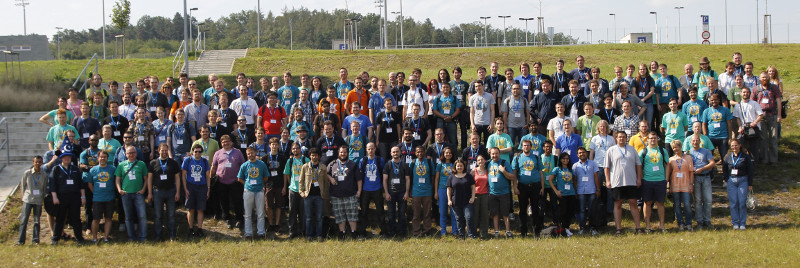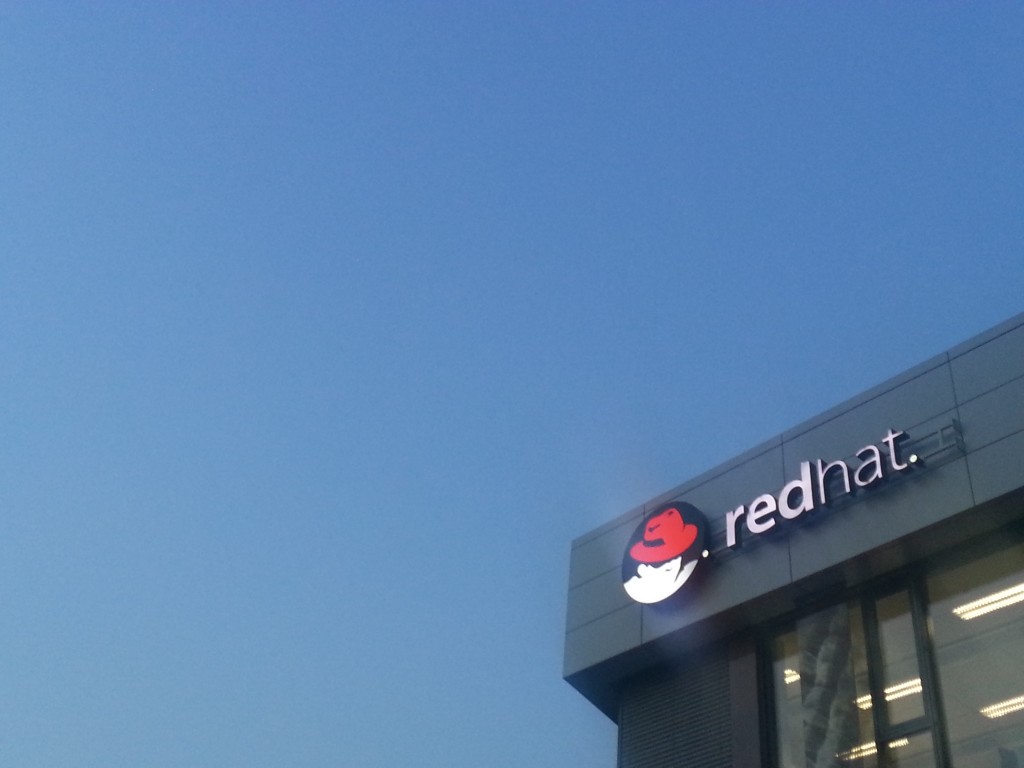In recent weeks I had an intense “Month of KDE Contributor” that began with LaKademy, the KDE Latin American Summit, and ended with Akademy, the KDE World Summit. It was a month somewhat tiring, hard work, but it was also filled with good stories, great meetings, new contacts, discoveries and, I can say, fun.
Previous post I wrote about LaKademy and now I will write about Akademy.

LaKademy had ended just one day before and there I was getting a bus to São Paulo again, preparing for a trip that would take about 35 hours to Brno, with an unusual connection in Dubai and a bus from Prague, the Czech Republic capital, to the city of the event.

Arriving at Brno my attention was piqued by the beautiful architecture of this old city of the Eastern Europe, something exotic for Brazilians. During the event I had some time to walking in the city, especially on some nights for dinner and during the Day Trip. I could calmly enjoy the details of several buildings, museums, the castle and the city cathedral.
It was the second Akademy I attended, if you count the Desktop Summit in 2011. This time I am a member of the KDE e.V., the organization behind KDE, so my first task was to attend to General Assembly.
I was fascinated how dozens of contributors from different parts of the world, from different cultures, were there discussing the future of KDE, planning important steps for the project, checking the accounts of the entity, in short, doing a typical task of any association. I was also impressed by the long applause for Cornelius Schumacher, a member of the KDE e.V. Board since 2002 and former president of the association. A way to show gratitude for all work he accomplished in those over 10 years in KDE e.V. Board.
In the end the day we had a reception for participants at Red Hat. I was impressed with the size of the company in the city (three large buildings). We drank some beers of the country and distribute Brazilian cachaça. =)
The next day began the talk days. I highlight the keynote of Sascha (I believe he was invited to Akademy after Kévin Ottens have seen him lecture here in Brazil during FISL), and the talk on GCompris, software that I admire because it is a educational suite for children. Unfortunately, one of the lectures that I wanted to see not occurred, that was Cofunding KDE aplications. We were David Faure talking about software ports to KF5, and presentation of KDE groups of India and Taiwan in the end of day.
The second day of talks we had a curious keynote of Cornelius who presented some history of KDE using images of old contributors. The highlights of the day were also the presentations by VDG staff, the group that is doing a amazing design work in Plasma 5, and now they are extending their mouse pointer to KDE applications too. Great!
Another interesting presentation was on Next Generation of Desktop Applications, by Alex Fiestas. He argued that the new generation of software need to combine information from different web sources in order to provide a unique user experience. He used examples of such applications, and I’m very curious to try Jungle, video player that will have these characteristics.
Finally this day had a lecture by Paul Adams, very exciting. He shows that, after investigation in KDE repositories, the degree of contribution among developers decreased with the migration from SVN to GIT, the number of commits decreased too, and more. Paul has interesting work in this area, but for my part I think it is necessary to explain this conclusions using anothers concepts too, because we need to understand if this decreased is necessarily a bad thing. Maybe today are we developers more specialized than before? Maybe is the decrement of commits just a result of code base stabilization in that time? Something not yet concluded in KDE is that we came from a large unified project (including in repository level) to a large community of subprojects (today we are like Apache, maybe). In this scenario, is it worth doing comparisons between what we are today with what we were yesterday, based only on our repositories? Anyway, it is a good point to ponder.
In BoFs days, I participated in the first two parts of the software documentation BoF – an important and necessary work, and we developers need to give a little more attention to it -; FOSS in Taiwan and KDE Edu in India. Unfortunately I could not attend to packagers BoF (well, I am a packager in Mageia), because it occurred in the same time of Taiwan BoF. Letś try again in next Akademy. =)
I like to see the experiences of users/developers groups in other countries; the management of these activities attracts me, mainly because we can apply either in Brazil. I left this Akademy with the desire to prepare something about Latin America community to the next event. I believe we have much to share with the community about what we’re doing here, our successes and failures, and the contribution of Latin American for the project.
Finally the other days I continued working on the Cantor port to KF5 or I was talking with different developers in the halls of university.
To me it’s very important to participate in Akademy because there I can see the power of free software and its contributors, and how this culture of collaboration brings together different people for development and evolution of free computer programs. Therefore, I would like to thank immensely to KDE e.V. for the opportunity to go to Akademy and I would like to say that I feel very good to be part of this great community that is KDE. =)
The best of all is to see old friends again and meet new people. When that e-mail address gets contours of human face is a very special moment for us who work “so close and so distant”. So it was amazing to be with all of you!

Akademy 2014 Group Photo – giant size here
And to finnish I desire a great job to the new KDE e.V. Board!
Those interested, most of the talks presented with video and slides are available in this link.
